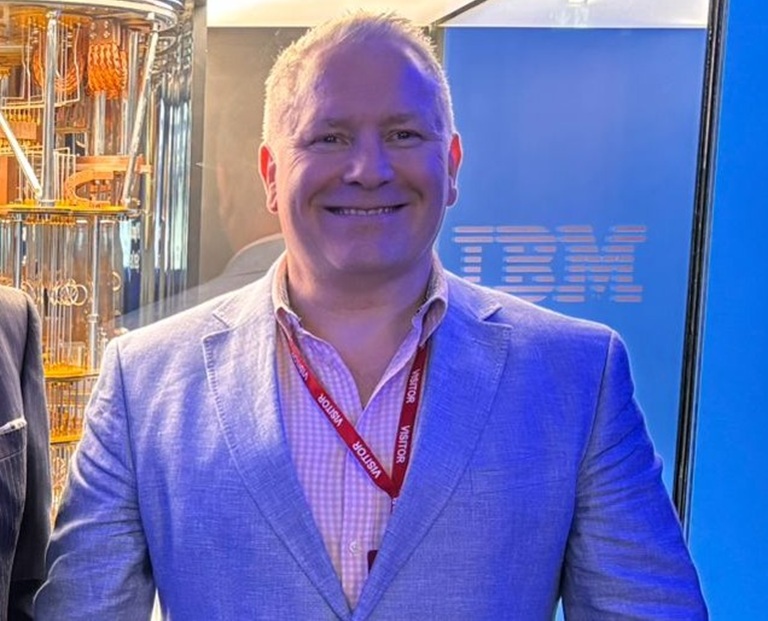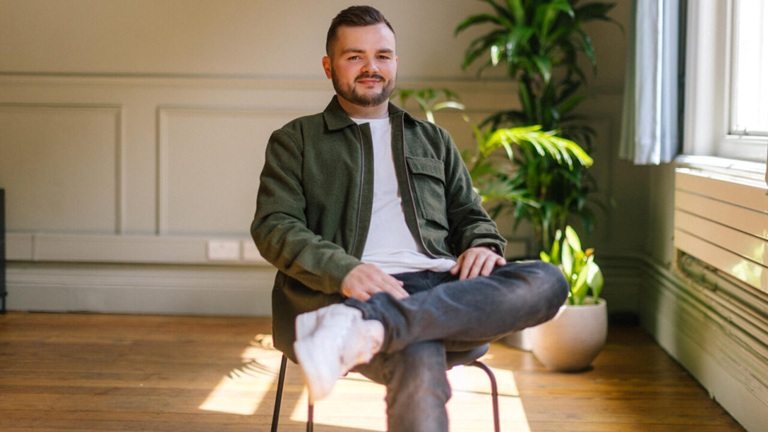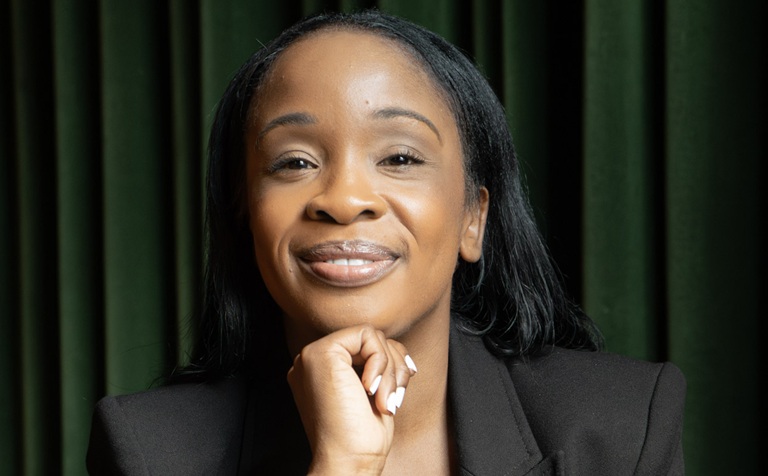What small business owners told us about the Budget
)
Posted: Wed 26th Nov 2025
Last updated: Wed 26th Nov 2025
11 min read
We asked small business owners across the Enterprise Nation community what they made of the Chancellor's Budget.
Here is how it looks from their side of the till, laptop and balance sheet.
Mandy Brown, Harrison & Brown, Sunderland – home and lifestyle retailer
Mandy runs independent high-street retailer Harrison & Brown in Sunderland. For her, the Budget is "a mixed bag".
She worries about the combined hit of higher dividend taxes, another increase to the minimum wage and frozen income tax thresholds:
"The increase in dividend tax is certainly not good news, and the rise in minimum wage continues to push up costs for small businesses like mine.
"Freezing the personal tax band isn't helpful either. It leaves the public with less spending money, which ultimately affects the people I want to see shopping in my store."

Ameesha Green, The Book Shelf, Birmingham – independent business book publisher
Ameesha, founder of The Book Shelf, is relieved that value added tax (VAT) has been left alone for now and cautiously welcomes a reform of business rates:
"I'm relieved there's no increase to VAT. The mention of reductions to business rates is welcome, but we still need clarity on when these will come into effect and by how much."

Campbell Murray, SouqBox, Newbury – digital marketplace platform
Campbell leads SouqBox, a digital marketplace platform working with sectors including food manufacturing.
He sees little direct impact on his own business, but is deeply concerned about the broader economic picture.
He expects minimum wage rises to feed into inflation and sees little in the Budget to shift the growth dial:
"I can't see anything in this Budget that will drive growth. Not a single thing. Yet the government says the Budget is anchored on growth."
His biggest worry is what he calls "capital and talent flight", with more founders moving themselves and their businesses overseas:
"The best talent, in my opinion, is leaving, and I heard nothing from the government to incentivise entrepreneurs to choose Britain to build their company.
"The hidden cost of having a global reputation as an 'entrepreneur-unfriendly' country is that we just can't compete on the global market."
Campbell welcomes moves on business rates for high streets, the higher cap for the expensive car charge and the decision not to introduce an "exit tax".
He jokes that otherwise "it would've made the UK like the Hotel California – you can check out but never leave, financially".

Olly Tyler, Shroot Plant Gifts, Bristol – eco-gifting and online retail
Olly co-founded Shroot, an eco-friendly plant gift business. For him, the Budget changes little in the short term:
"This Budget doesn't feel hugely transformative either way."
Shroot already pays under-21 staff above the minimum wage, so the rise has limited direct impact, though he expects higher wage costs in the wider supply chain over time.
He sees potential upsides in anything that "levels the playing field with very cheap overseas imports" and in more skills and training support for young people in small and medium-sized enterprises (SMEs).
Overall, though, it feels like "a continuation of existing pressures rather than a big win or loss".
Majida Burch, Brennan and Burch, Barking – homewares and youth services
Majida runs Brennan and Burch, a homewares and youth-focused business in Barking. She strongly backs the focus on fair pay and welcomes higher wage floors:
"We already pay staff above the London Living Wage and are happy that changes from £13.85 to £14.80 will help anyone employed by the 4,332 employers in London who have signed up to the pledge, lifting working people out of poverty."
The increases in the National Minimum Wage, especially for people aged 16 to 21, are positive in her view:
"This will support the many people just about surviving on minimum wage, and will also benefit younger workers that we employ."
Gareth Austin-Jones, Cocorose, London – footwear brand and youth arts
Gareth runs shoe brand Cocorose and supports young people through the Big Smile Collective youth art factory. He focuses on what the Budget means for low-income families and future workers.
He welcomes the removal of the two-child limit for Universal Credit from April 2026, which he believes "will be helpful to those within larger families" living below the poverty line.
He's disappointed that personal tax allowances will remain frozen for another three years, as this "would have eventually helped lower earners including working families".
However, he is encouraged by "increased opportunities for young people to get into apprenticeships and ultimately paid work".

Charlotte Kuti, The Organised Kollective, London – social impact members' club
Charlotte founded The Organised Kollective, a social impact members' club and community interest company.
She felt the Budget has paid attention to founders and impact-driven businesses:
"There was great recognition for founders and entrepreneurs as the people who risk their own capital, bet on purpose and impact and create opportunities for themselves, others and the wider community."
She welcomes the commitment to innovation and enterprise, but wants to see real, accessible funding, especially for under-represented founders who are still bootstrapping:
"I'd love to see the opportunities for funding created over the coming months and years, especially for under-represented founders."
She's also pleased there are "no changes to corporation tax" and takes an interest in "crackdowns on fraudulent contracts during COVID and clawing back money to the public purse".
Christina Ferraz, CHF Decluttering, London – decluttering services
Christina runs CHF Decluttering and has already been hit by earlier increases to employer National Insurance contributions (NICs). Her main feeling is relief:
"We're grateful there'll be no further increases to employer National Insurance, as the rate rises and lower thresholds since April 2025 have been hard for our business to pay."
She notes that community and not-for-profit organisations have "really struggled, particularly those with funding spanning multiple years", and says simply, "We couldn't have afforded a further rise in employer NICs."

Leyla Preston, Motherhood Diaries, Henley – pregnancy and parenting magazine
Leyla runs Motherhood Diaries, a 15-year-old online magazine, and is co-founder of a new artificial intelligence parenting app.
She sets the Budget against a backdrop of higher National Insurance contributions and tighter thresholds that have already "been a real blow", even with some help from the Employment Allowance.
Looking ahead, she's most anxious about any move to lower the VAT registration threshold from £90,000, which "would mean more admin burden for growing businesses".
She also wants to see that government AI investment actually reaches smaller players rather than "just the tech giants".
Leyla's request is straightforward:
"For established small businesses, stability and breathing room. We need space to invest in growth rather than just survival."
For start-ups, she wants continued protection for SEIS and EIS, freedom to use Enterprise Management Incentives to attract talent and "genuine access to the AI funding that's been promised".

Paul Shaw, Mercatus Consulting, London – consultant business adviser
Paul advises many pubs, cafés and retailers through Mercatus Consulting. He sees another squeeze on already-pressured sectors:
"The rise in minimum wage will hit a lot of hospitality businesses – many of which are still reeling after the last Budget increases in employer's NICs and the previous minimum wage increase."
He notes the promises of lower business rates, but doubts they'll fully offset the pressures of extra wages and costs, and is disappointed there was "no mention of VAT reform".
Paul also points to excise duty on electric vehicles as a new cost for firms with fleets, and says halving Capital Gains Tax relief for employee ownership trusts may make some founders rethink that route.
His overall verdict is blunt:
"Nothing particularly good for SME owners in this Budget. On the other hand, it could've been an awful lot worse."

Rebecca Thomson and Rachita Saraogi, Sisterhood, Kent and Surrey – CIC for women and girls
Rebecca and Rachita co-founded Sisterhood, a community interest company (CIC) delivering entrepreneurial and design education for women and girls.
They see a clear positive in the Budget's focus on UK-founded enterprises:
"The Chancellor's prioritisation of investment in UK-founded enterprises is a significant and positive signal for organisations like Sisterhood."
They argue that backing mission-driven ventures like theirs can help close the productivity gap with the United States and "unlock an additional £10 billion-plus for the UK economy".
However, they're worried about plans to cap the National Insurance exemption on salary-sacrificed pension contributions, which would "directly increase the cost of employment for the companies with whom we partner" and reduce funds available for growth.
They welcome the proposed founders' consultation as a chance to have their ideas heard.
People also read
See our latest media and policy impact
We give small businesses a voice – in the media and in Westminster. See our latest press releases, policy insights and how we're championing small firms. Visit the media and policy centre
Get business support right to your inbox
Subscribe to our newsletter to receive business tips, learn about new funding programmes, join upcoming events, take e-learning courses, and more.
Start your business journey today
Take the first step to successfully starting and growing your business.
Join for free

